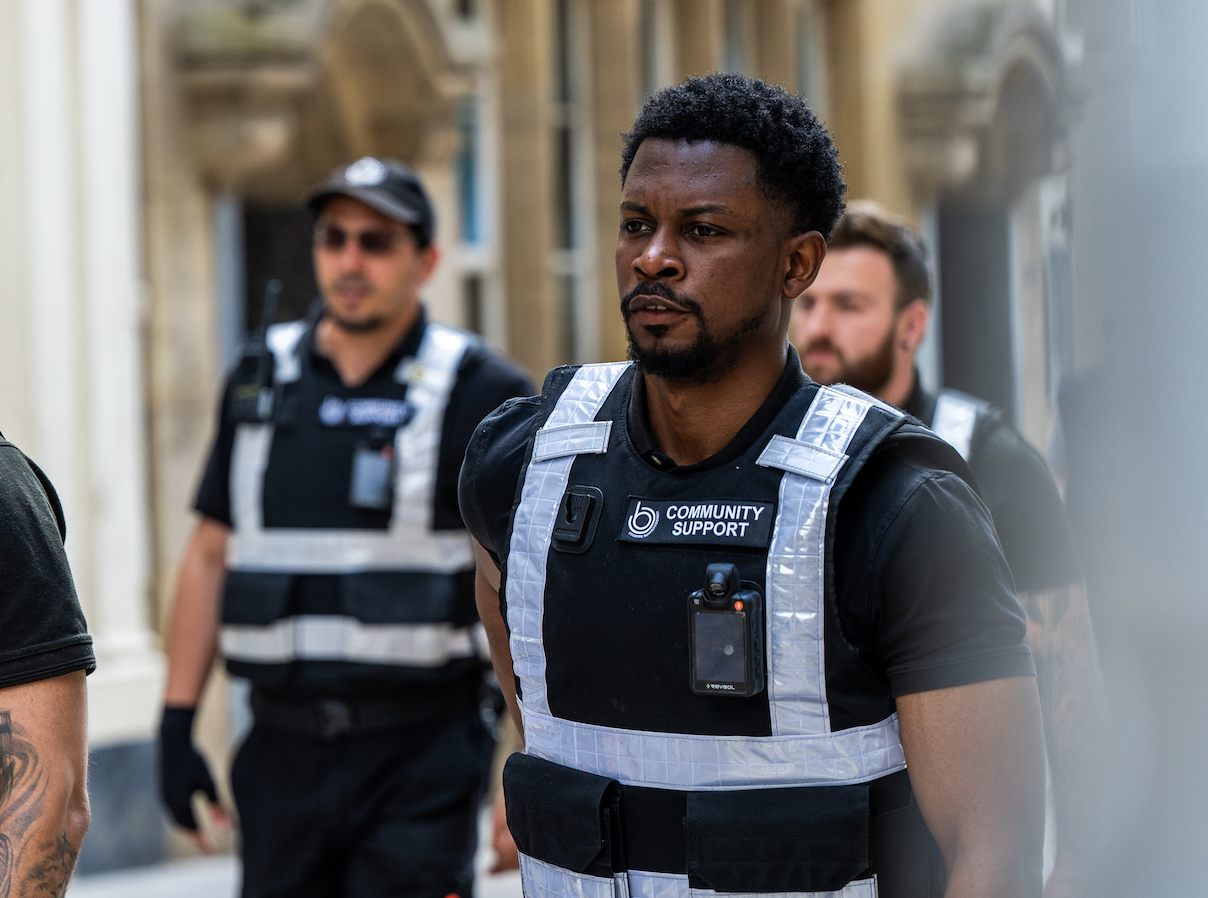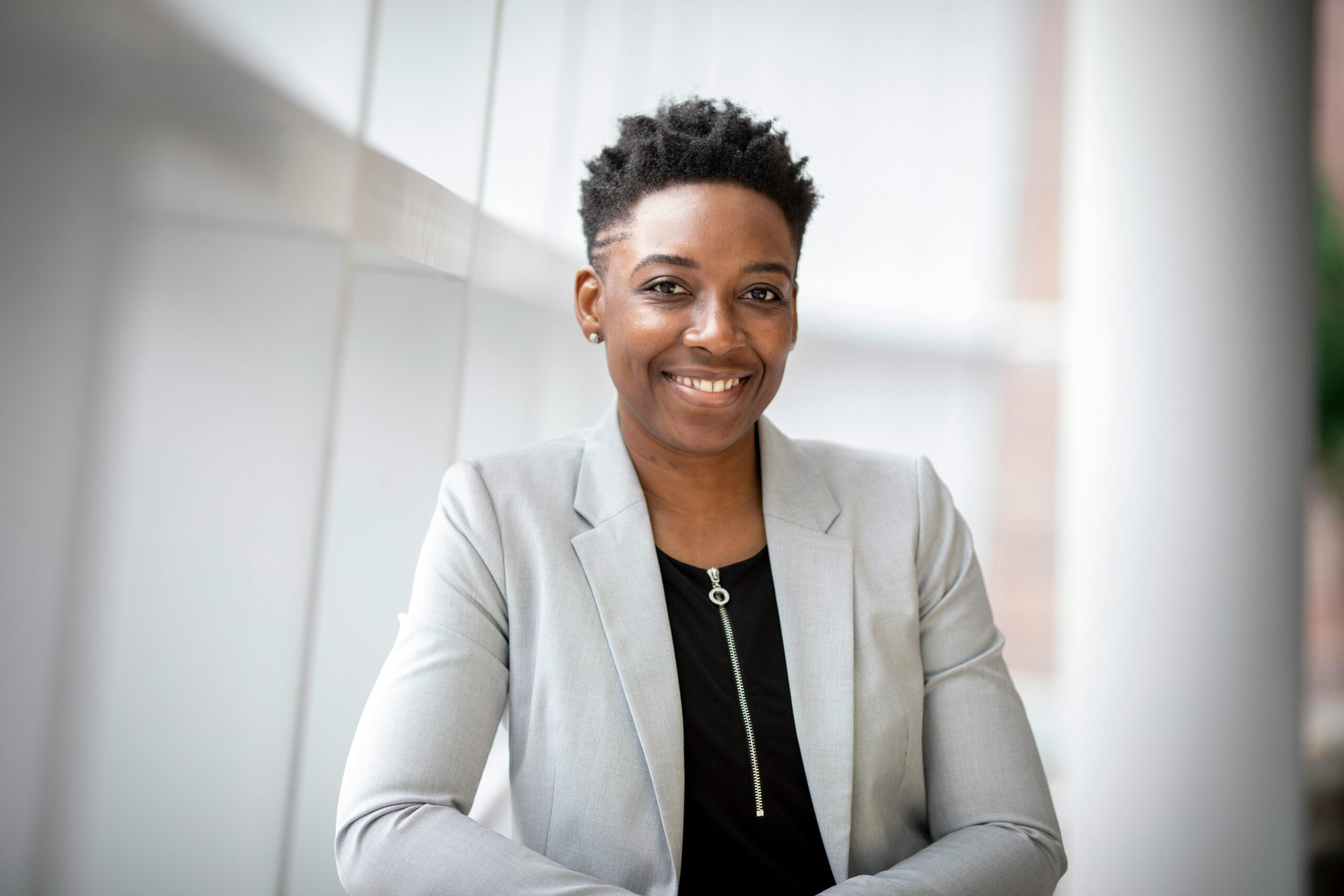Found Cities, Lost Objects: Women in the City curated by Turner Prize-winning artist Lubaina Himid CBE opens at Birmingham Museum & Art Gallery on Saturday
13 May 2022
Opening at Birmingham Museum & Art Gallery (BMAG) on Saturday 14 May, the Arts Council Collection presents Found Cities, Lost Objects: Women in the City, a national touring exhibition curated by Turner Prize-winning artist and cultural activist Lubaina Himid CBE, which explores modern city life from a female perspective.
Exploring shared female experiences of urban life, this exhibition considers the privileges enjoyed and boundaries faced by women in the modern city. On display from 14 May to 4 September 2022, in the Gas Hall at BMAG, this large exhibition of over 60 works presents a wide array of modern and contemporary art, including painting, sculpture, photography and film from both the Arts Council Collection and Birmingham’s collection.
From the Arts Council Collection, susan pui san lok’s film Trailers (RoCH fans and Legends) overlaps the everyday mundanity of the traditional British high street seen through Google Street View with film clips of martial arts film sequences, speaking to the poetics of diasporic communities where place-making can be both banal and dramatic.
Getting lost in a crowd to observe the hustle and bustle of city life has long inspired artists. French artist Sophie Calle’s embroidered tie recalls a humorous story where she dresses a man from afar, sending him gifts in the post as she becomes the female flâneur roaming the city and assuming the role of observer. The important work of female documentary photographers such as Margaret Murray and Markéta Luskačová, in capturing the life of the city from a female gaze, provides a key perspective on society not always found in mainstream channels. Artists such as Young In Hong and Magda Stawarska-Beavanhistoricise key global events, speaking to our relationship with history, specifically where it is evident in cities and where it has been masked.
Maps are key to our understanding of space helping us to navigate from place to place. Inspired by artist and founder of the A-Z Geographer’s Company, Phyllis Pearsall this exhibition looks at the aesthetic qualities of maps as a perfect combination of useful and exquisite design. Using part of a heated meteorite found in Namibia in 1836 to burn an A-Z map, Cornelia Parker imagines a series of apocalyptic events which destabilise a familiar environment.
The exhibition also highlights works which reimagine and question what a city designed for and by women might look like. Tai Shani’s performance work, Dark Continent: Semiramis, builds a metaphorical protected city for women, using examples of important contributions women have made to Western civilisation and arguments that prove their intellectual and moral equality with men. Expanding on these themes, Found Cities, Lost Objects encourages conversations between audiences and artists, exchanging observations, memories and imaginings to give us all a greater sense of ownership and belonging.
Additional works from eight artists in Birmingham’s collection of modern and contemporary art continue to explore the themes of the exhibition, including a large-scale installation, Expressive Deviant Phonology, by Birmingham-born contemporary street artist Lucy McLauchlan. McLauchlan’s monochrome urban artworks will be recognisable to many past visitors to Birmingham as her depiction of three birds once graced the concrete-clad Birmingham Central Library before it was demolished.
Other Birmingham works include German visual artist Christiane Baumgartner’s depiction of Ladywood and Klara Liden’s Self Portrait with Keys to the City which raises the issue of who has access to what in our society and where we actually belong.
Deborah Smith, Director, Arts Council Collection, says: “It’s always exciting to see what fresh perspective artists will bring and what stories they will tell when we give artists an open brief to curate the Arts Council Collection. The Collection has enjoyed a long relationship with Lubaina, from acquiring her work in 1988 to her show Meticulous Observations at the Walker Gallery, Liverpool, where she mined the depths of the Collection. Found Cities, Lost Objects’ impressive pedigree of female artists offers new perspectives on urban life and helps us understand how art is a powerful tool in shaping our cities and the world around us.”
Lubaina Himid CBE, artist, says: “Found Cities, Lost Objects challenges the status quo by encouraging viewers to discover the city through the eyes of female artists. Women generally inhabit cities via retail and healthcare venues, but how can we expand our presence beyond this for everyone’s benefit, now that these spaces are under pressure to perform differently? The exhibition explores the contradictory experiences of women across the city, free to roam the streets while always considering the boundaries within which that freedom is contained.”
Katie Morton, Exhibitions Team Leader at Birmingham Museums Trust, said: “We’ve had a great response since opening the doors to Birmingham Museum & Art Gallery again at the end of last month and we’re really excited to be bringing this Arts Council Collection exhibition to the city as our first major Gas Hall exhibition in nearly two years.
“Seeing Lubaina’s curatorial vision come to life here in Birmingham has been fascinating and the mixture of artworks she’s chosen from the Arts Council Collection and Birmingham will offer a wide range of viewpoints for visitors to explore so they can reflect on their own experiences of the city.”
The exhibition will open at Birmingham Museum & Art Gallery following the partial reopening of the site last month. In order to ensure this exhibition is accessible to everyone, instead of paying a set ticket price visitors are asked to ‘give what you can’. Any contribution helps Birmingham Museums Trust to cover the significant costs of staging such an exhibition, as well as ensuring that price is not a barrier to anyone who wants to visit.
Found Cities, Lost Objects features works by Sophie Calle, Helen Cammock, Milena Dragicevic, Anthea Hamilton, Young In Hong, Markéta Luskačová, Margaret Murray, Cornelia Parker, susan pui san lok, Hannah Starkey and Magda Stawarska-Beavan, among others.
Established in 1946 as a national collection for the UK, today the Arts Council Collection cares for over 8,000 works by close to 2,200 artists. The Collection is managed by the Southbank Centre on behalf of Arts Council England, and is committed to supporting artists from a wide range of backgrounds and disciplines, most often at an early stage of their career, in order to reflect the rich, diverse culture of the UK. It is a widely circulated national collection that can be seen in museums, galleries, schools, universities, hospitals and charitable associations across the UK and abroad.
For more information about Found Cities, Lost Objects: Women and the City, visit www.birminghammuseums.org.uk/bmag/whats-on/found-cities-lost-objects.












